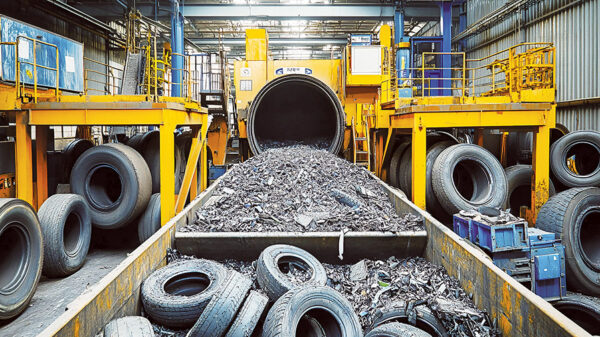Los Angeles City Attorney Mike Feuer took aim at two businesses alleged to have been involved in a catalytic converter theft ring.
Feuer has filed a civil lawsuit against two Southern California businesses which allegedly repeatedly received or sold stolen catalytic converters and failed to keep proper bookkeeping records to cover the allegedly illicit nature of the fencing operation.
“California has more catalytic converter theft than any state in the nation, a problem that’s plagued Los Angeles motorists for far too long,” said Feuer. “Today we focus on breaking up the allegedly illegal operations that drive these thefts, and fighting to hold accountable business owners whom we allege don’t play by the rules.”
In just the last 4 years, LAPD has received more than 4,367 reports of catalytic converters stolen from vehicles, typically resold on the black market. In an effort to curb the growing trend of catalytic converter thefts, the California legislature adopted California Senate Bill 267 in 2009, requiring businesses or individuals who purchase used catalytic converter parts to follow strict record keeping and payment requirements. Unless otherwise exempted, purchasers of catalytic converters are to keep detailed records of the date, name, driver’s license number, description of the parts purchased and are prohibited from providing cash payments at the time of sale.
In April, 2015, the LAPD formed the Catalytic Converter Task Force (CCTF) to investigate, identify and target the illicit market for catalytic converters in Los Angeles. The City Attorney’s lawsuit alleges that the CCTF identified Gonzalez Brothers LLC, an auto parts recycling business located at 12970 Branford Street in Pacoima and Kinsbursky Brothers Supply Inc., a scrap metal recycler in Anaheim which buys scrap metal and parts from sellers across southern California, for alleged violations.
The lawsuit alleges the operators of Gonzalez Brothers knowingly purchased thousands of stolen catalytic converters off the black market and resold them to other recyclers, including the operators of Kinsbursky Brothers, for profit. The businesses allegedly avoided required recordkeeping and payment obligations in order to facilitate the fencing and laundering of stolen property.
During a 2015 surveillance investigation, CCTF allegedly observed employees with Gonzalez Brothers engage in numerous paperless, cash sales of used catalytic converters, often with known catalytic converter thieves. A subsequent search warrant of the location allegedly recovered tools used to remove catalytic converters, various records and over 300 catalytic converters. None of the records involving catalytic converter sales were alleged to contain the identifying information required by law and investigators did not locate any written agreements with other businesses regarding accepting and recycling converters.
Further investigation by CCTF discovered Kinsbursky Bros. was one of the largest buyers of Gonzalez Brothers, allegedly purchasing more than seven thousand catalytic converters over the course of two and half years. Between August, 2015, and September 18, 2015, alone, Kinsbursky Bros. allegedly purchased 23,822 catalytic converters through 364 transactions from a variety of sellers. The lawsuit alleges that none of the transactions included the legally mandated information that Kinsbursky Bros. was obligated to retain. CCTF Officers also failed to locate, and were not provided, any written agreements between Kinsbursky and any other business regarding accepting and recycling catalytic converters, as required by law.
The lawsuit seeks an injunction against the operators of Gonzalez Brothers and Kinsbursky Bros., prohibiting further illegal activity and enjoining them from operating as a clearing house for stolen converters. The lawsuit also seeks civil penalties up to $2,500 for each violation.
City Attorney Feuer encourages motorists to use common sense and consider additional measures to protect themselves against potential catalytic converter theft including:
•Park your vehicle in well-lighted secured areas and near the entrance of businesses.
•Engrave your license plate number to the converter to make it traceable.
•Visit a muffler shop to have converter secured to the vehicle’s frame.
•Look into different types of catalytic converter theft deterrent systems at your local auto parts store or online.
The litigation is being handled by Deputy City Attorneys Travis Austin and Jaclyn Blankenship.
Published in the February 2017 Edition of American Recycler News






